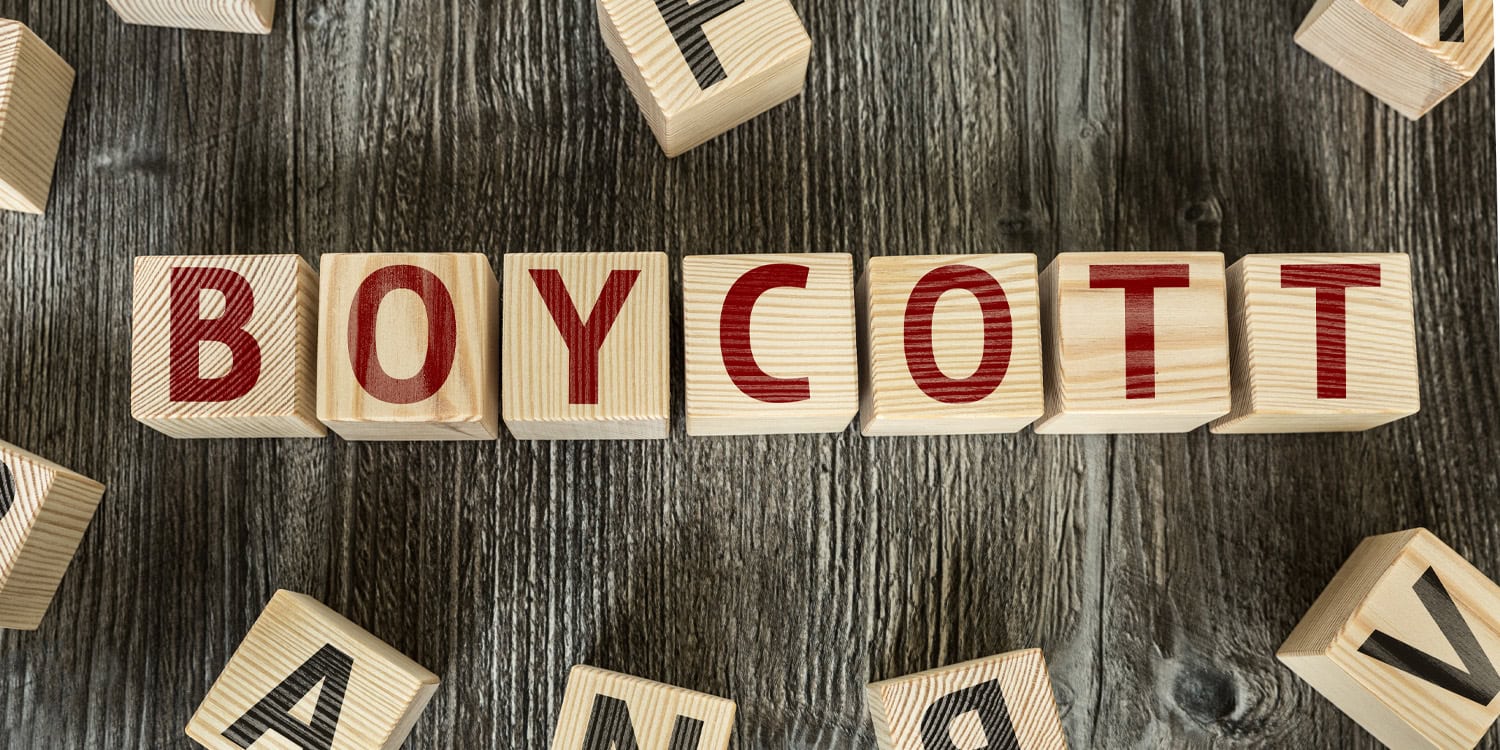A recent study published in American Politics Research highlights an evolving trend in the United States. The research found that in 2016, strong liberals were significantly more likely to engage in boycotts than strong conservatives. However, by 2020, this gap had largely closed, with both liberals and conservatives showing a strong inclination toward boycotts. Additionally, attitudes of grievance, particularly those related to racial or ethnic minorities and perceptions of discrimination, were associated with higher boycott activity.
Political consumerism, which involves using economic choices to express political views, has gained prominence in recent decades. Consumers may engage in boycotts—avoiding specific products or services to protest company policies—or “buycotts,” deliberately purchasing from companies that align with their values. This form of activism has become a way for individuals to make political statements outside traditional venues, such as voting or demonstrations.
A significant part of today’s political consumerism is linked to what is often referred to as “cancel culture.” Cancel culture generally involves calling out individuals or organizations for perceived offensive actions or behaviors, leading to public disapproval, social ostracism, and, frequently, boycotts. In many cases, political consumerism becomes the tool by which “canceled” entities face economic consequences. Ideological consumers can collectively choose to stop purchasing products from companies that are seen as supporting harmful practices or ideologies.
The researchers wanted to understand the factors that drive individuals to engage in political consumerism, particularly boycotts. They were interested in how political ideology, partisanship, and perceptions of social grievances, such as discrimination against marginalized groups, influenced this behavior. By analyzing data from two major election years—2016 and 2020—the study aimed to capture any changes in the patterns of boycott behavior, particularly the role of political ideology and the impact of broader social movements.
To investigate these questions, the researchers analyzed data from the 2016 and 2020 American National Election Study (ANES), a comprehensive survey of U.S. voters that collects information on their political beliefs, behaviors, and demographics. The 2016 ANES sample included over 4,000 respondents, and the 2020 sample involved more than 7,000. Both surveys were conducted before and after the respective presidential elections and included a mix of in-person and online interviews.
The primary measure of boycott behavior was based on a survey question asking participants how often, in the past 12 months, they had avoided purchasing certain products or services due to the company’s social or political values. Responses were scored on a five-point scale, ranging from “never” to “always.”
In 2016, the researchers found that strong liberals were significantly more likely to engage in political boycotts than strong conservatives. As liberals became more ideologically intense, their likelihood of boycotting products increased. On the other hand, conservatives showed relatively low participation in boycott activities, even among those who identified strongly with conservative views.
By 2020, the situation had shifted notably. While strong liberals continued their high levels of boycott participation, conservatives saw a sixfold increase in their boycott activity compared to 2016. This closed the ideological gap significantly, suggesting that both liberals and conservatives were nearly equally likely to use boycotts as a form of political expression.
“In 2016 liberals had a major advantage in terms of boycott behavior, but this gap closed considerably in 2020 as conservatives increased their level of boycott activism,” the researchers explained. “What activated conservatives to become more active in boycott behavior from 2016 to 2020? One possibility is that high-profile police killings of black Americans, the subsequent protest movement led by groups such as Black Lives Matter, and the corporate response embracing the “anti-racism” narrative all worked together to create a backlash and increase conservative boycott activity.
“The corporate embrace of anti-racism—in particular, as reflected by the highly-visible response by professional sports teams—may have motivated many conservatives to engage in political consumerism by boycotting corporations, sports leagues, and other institutions that embraced a racial narrative with which they disagreed. An empirical test of this speculation is beyond the scope of this paper and awaits further study, but it is important to explore why conservatives became active in political boycotts as we move from 2016 to 2020.”
Another major finding of the study was that attitudes toward marginalized racial and ethnic groups were associated with higher levels of boycott participation. For instance, individuals who held favorable views of groups like Blacks, Latinos, and Asians were more likely to engage in boycotts, particularly in 2016. Similarly, personal experiences with discrimination, whether based on race or gender, were linked to greater boycott activity. In 2020, the data showed that individuals who perceived high levels of discrimination against marginalized groups were also more inclined to boycott.
Interestingly, the results regarding support for LGBTQ rights were mixed. In 2020, the study found that strong advocates for LGBTQ rights were somewhat less likely to participate in boycotts, a surprising finding given the expectation that progressive social views would generally predict higher boycott activity.
The researchers also found that certain traits related to political engagement were strongly linked to an individual’s likelihood of participating in boycotts. Specifically, people who reported a high interest in politics, those who distrusted the government, and those who were active in their communities or made political donations were more likely to use boycotts.
While this study sheds light on the relationship between ideology and boycott behavior, it also has some limitations. First, the research relies on self-reported survey data, which may be influenced by social desirability bias—respondents might overstate or understate their participation in boycotts based on what they think is socially acceptable. Second, the study’s focus on 2016 and 2020 data means it cannot capture longer-term trends in boycott behavior over multiple decades.
Future research could explore several key questions that emerged from this study. For example, why did conservatives increase their boycott participation between 2016 and 2020? What specific political events or corporate actions triggered this shift? Researchers could also examine how boycotts impact corporate behavior. Do companies change their policies or public stances when faced with boycotts from different ideological groups?
The study, “Voting in the Mall: Ideology, Grievance, and Political Consumerism,” was authored by Kwadwo Poku-Agyemang and James C. Garand.




